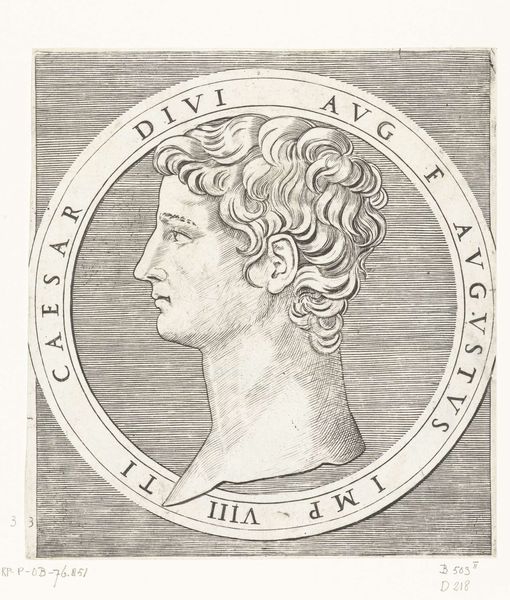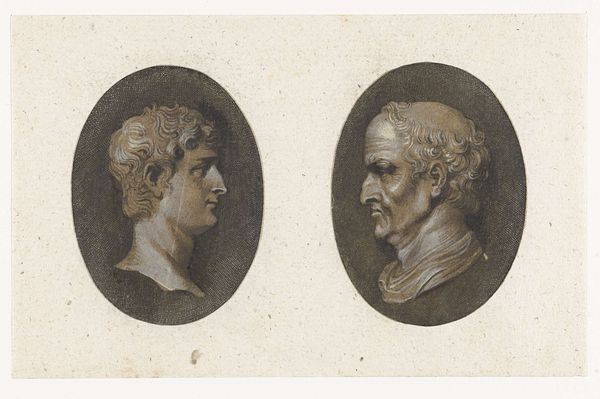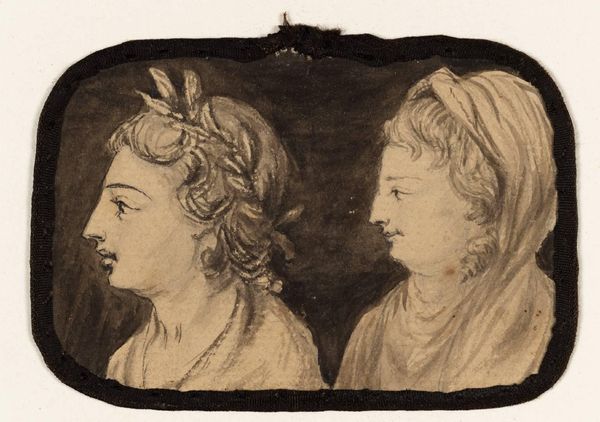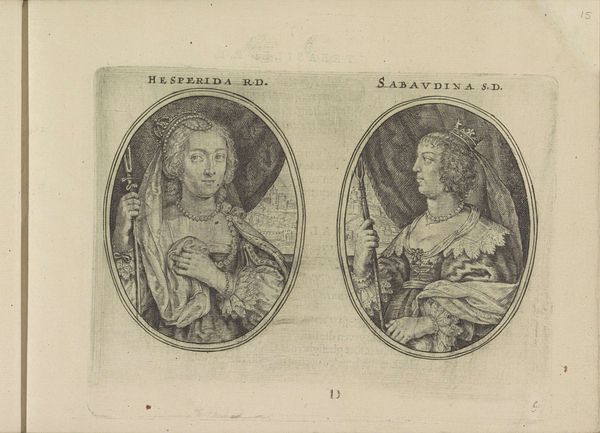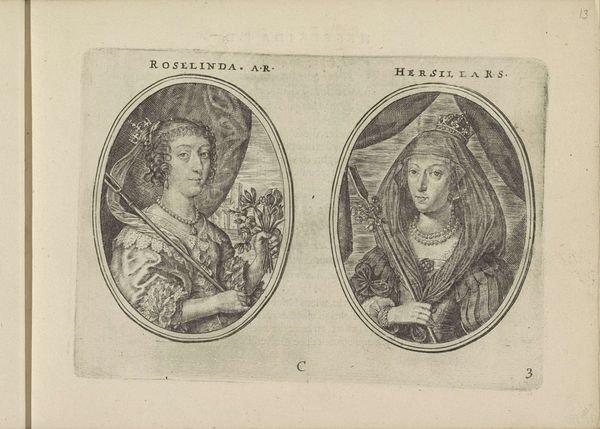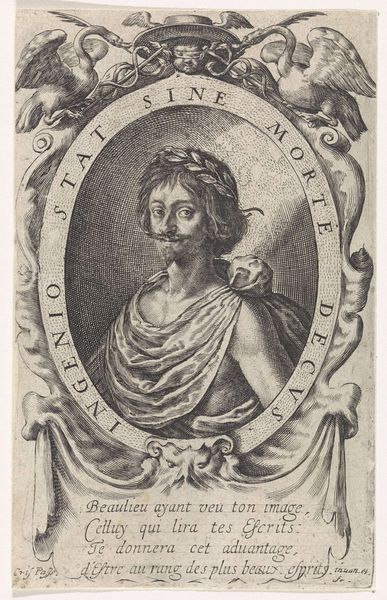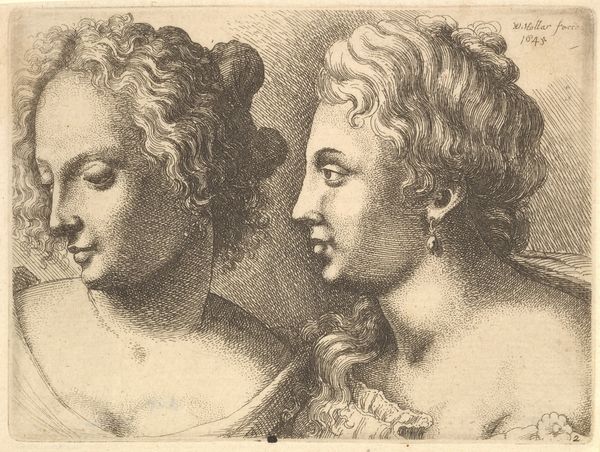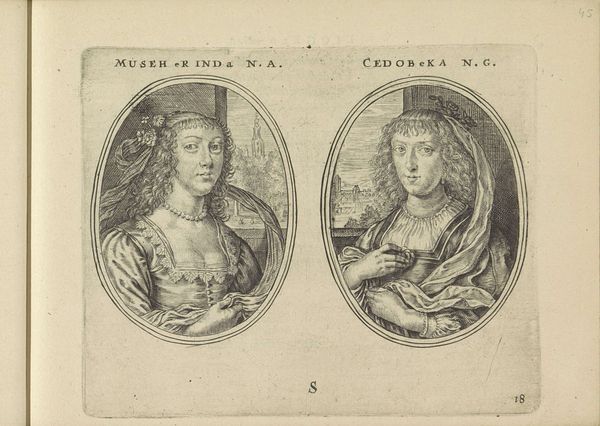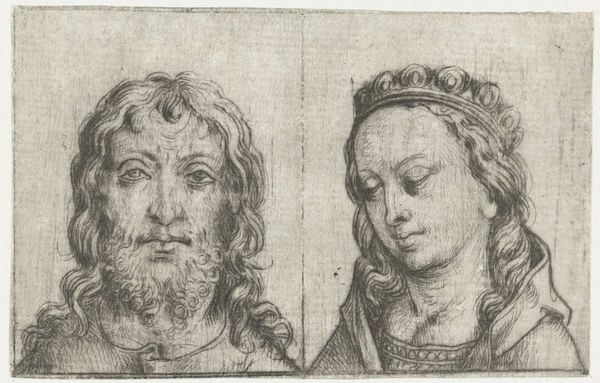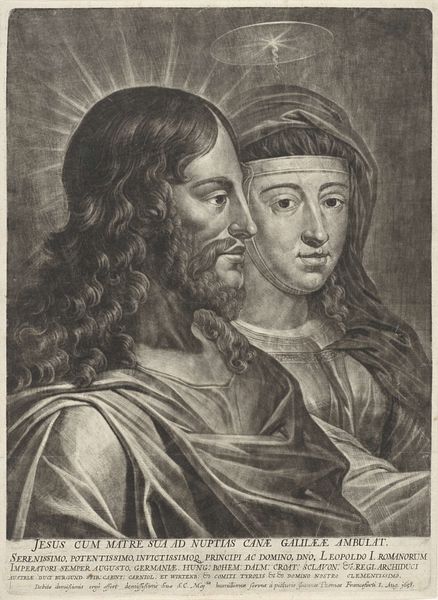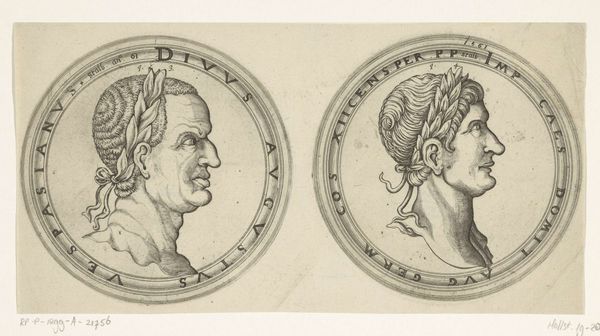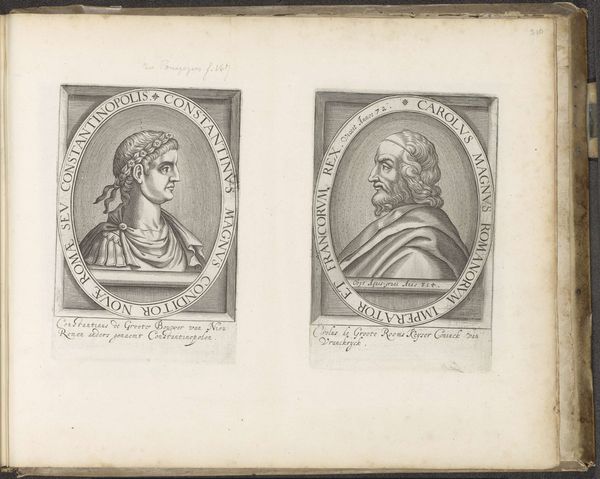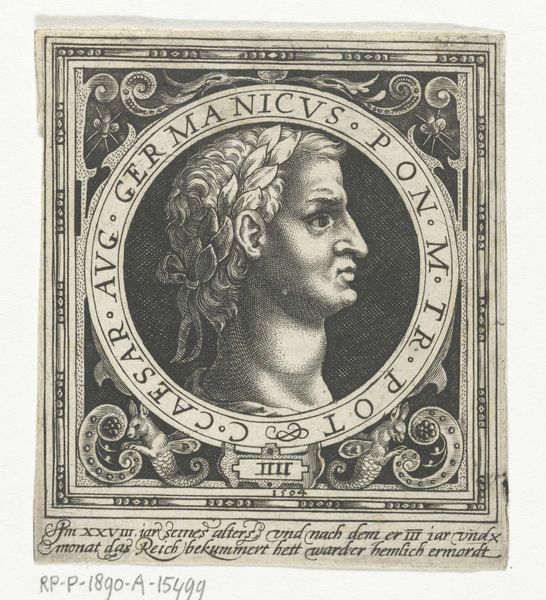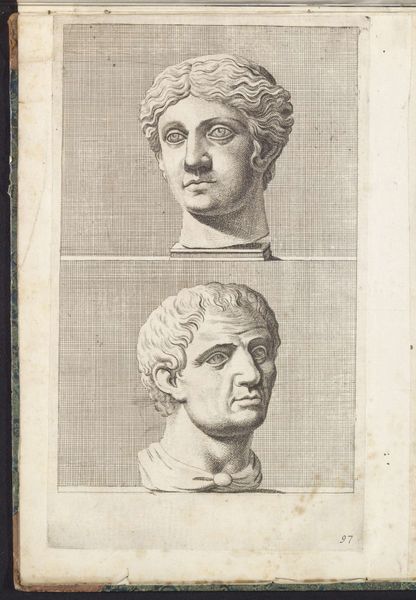
print, engraving
#
portrait
# print
#
11_renaissance
#
line
#
history-painting
#
italian-renaissance
#
engraving
Dimensions: height 38 mm, width 61 mm
Copyright: Rijks Museum: Open Domain
Lambertus Suavius made this print of Antoninus Pius and Faustina using engraving sometime in the 16th century. The image is based on the format of a coin, of the kind that were mass produced in antiquity to carry political messages. The act of a sixteenth-century artist re-imagining and re-presenting such an image raises intriguing questions about the role of classical imagery in European culture. In what ways might the artist be using classical imagery to comment on the social structures of his time? In the Northern Renaissance, there was a sustained engagement with classical art and culture, with classical forms and motifs functioning as a visual shorthand for power, authority, and even moral virtue. The institutions of art were developing too, with the establishment of academies of art that promoted the study of classical art as a foundation for artistic training. Understanding this print requires us to delve into the visual codes, cultural references, and historical associations that Suavius invokes. Researching period documents, artistic treatises, and social histories can shed light on the meanings that the artist and his contemporaries might have found in this image.
Comments
No comments
Be the first to comment and join the conversation on the ultimate creative platform.
